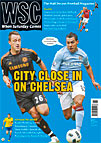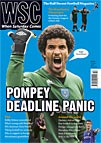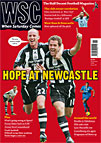 Paul Joyce studies how the Berlin Wall divided the city arbitrarily and changed the lives of clubs, players and fans
Paul Joyce studies how the Berlin Wall divided the city arbitrarily and changed the lives of clubs, players and fans
Although post-war Germany was divided into two states in 1949, football clubs on both sides of the border were determined to maintain sporting relations. Despite political tensions between capitalist West Germany (FRG) and the socialist East (GDR), numerous cross-border friendlies took place on public holidays in the early 1950s. These proved massively popular with supporters on both sides of the divide. In October 1956, 110,000 East German fans filled the new Leipzig Zentralstadion to watch 1.FC Kaiserslautern, whose team contained five players from West Germany’s 1954 World Cup-winning side, beat SC Wismut Karl-Marx-Stadt 5-3.



